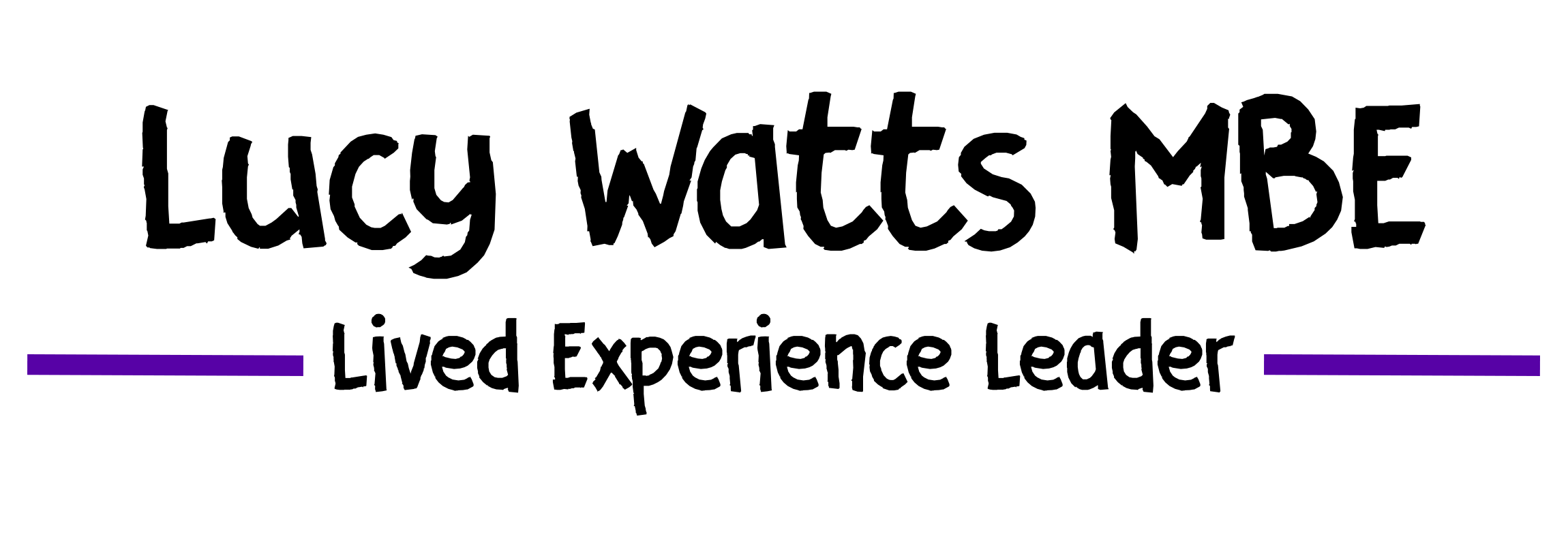What if we viewed lived experience as an asset? As an asset of professional, economic,…
Co-Production Week: Two Podcasts Sharing Two Different Uses of Co-Production
Co-Production Week
Two Lucy's Light Podcasts Share Two Different Uses Of Co-Production
This week it’s National Co-production Week, running 1st-5th July. Managed by the Social Care Institute for Excellence (SCIE, which is pronounced “Sky”), co-production week aims to raise awareness of co-production and to highlight good examples of co-production, especially in social care. Given this heavy social care focus, I wanted to produce two podcast episodes about two uses of co-production I have been involved with through my work, one on co-production in research and the other on strategic co-production in healthcare as utilised by NHS England. I’ll discuss these episodes more in a minute.
Co-production week is all about celebrating all that is great and good about co-production, how it can be done, what good co-production looks and feels like, what good co-production can achieve and different ways co-production can take place. Co-production is an approach to involvement, engagement and equal collaborative working between professionals and people with lived experience, rather than a prescriptive model with step-by-step instructions and pre-determined outcomes. Different models and methods have developed from different ways of utilising co-production and ways of embedding it within organisations and services, but it is a way of working and involving people rather than a fixed list of instructions.
As an individual involved in organisations, services, bodies and projects as a person with lived experience and a peer leader working in co-production, I have seen the good, the bad and the ugly of involvement of people with lived experience, including specifically working in co-production (or not, as is often the case). From tokenistic tick-box exercises, to equal partners working collaboratively with mutual respect and true partnership working where both sets of individuals are treated as experts with assets to bring to the table, I truly have seen – and been part of – it all.
Below are the two podcasts episodes embedded into this blog.
Episode 2 – Co-Producing Research with Young Disabled People – Living Life To The Fullest
In this podcast episode, I’m joined by Dr Kirsty Liddiard and Sally Whitney to discuss our ESRC-funded research project, Living Life To The Fullest. We talk specifically about our use of co-production and the innovative ways we’ve enabled true co-production to take place in an accessible way for the marginalised young disabled people we co-produced the research with, ensuring that they could be involved in every aspect of the project and that it worked with the limitations, needs and abilities of the young disabled people who formed our Co-Researcher Collective, along with valuing and utilising the unique skills each young person brought to the table. LLTTF sees disability as a valuable asset and the lived experiences of the Co-Researcher Collective really enabled us to see the people behind the data we were collecting and our lives experiences influenced not only how the project was carried out and methods used, but also enhanced the richness, quality and reality of the data we collected through the interview schedule we created and the questions we asked. As Kirsty says in the episode, it would’ve been a completely different project with vastly different data and outcomes had it been carried out by a group of academics in a university, compared to our project that has been co-produced from start to finish and uses very different ways of working to traditional research; as I say in the podcast, “I see ourselves a bit as pioneers”. Check out and listen to the podcast episode to hear all about the project, our methods, our use of co-production, how we have worked, the technologies we have used, the experiences of and impact on the co-researchers and the academics, and how co-production has been absolutely fundamental to the project.
Episode 3 – Strategic Co-Production in Healthcare: NHS England
In this episode I talk with a number of people all about strategic co-production, specifically around NHS England’s Lived Experience Team and their National Strategic Co-Production Group, first In joined by Sherone Phillips, a member of the NHSE Lived Experience Team who shared her background and experiences and then shared with us a fairly brief overview of the co-production model used by NHS England and specifically the Lived Experience Team and Personalised Care Group. Then we hear from four members of the National Strategic Co-Production Group Talking through their experiences of being part of the Group and the work we do. Also included are these sand individuals talking about the Peer Leadership Academy run by NHS England and the Peoplehub Community Interest Company, whose participants upon successful completion of the Academy are then able to apply to become members of the National Strategic Co-Production Group. This demonstrates another utilisation of co-production.
I hope you enjoy both podcast episodes. Don’t hesitate to get in touch if you have an idea for a future podcast and/or would like to appear on it. Also don’t hesitate to get in touch to learn more about my work.
Do follow Co-Production Week on social media using #CoProWeek




This Post Has 0 Comments